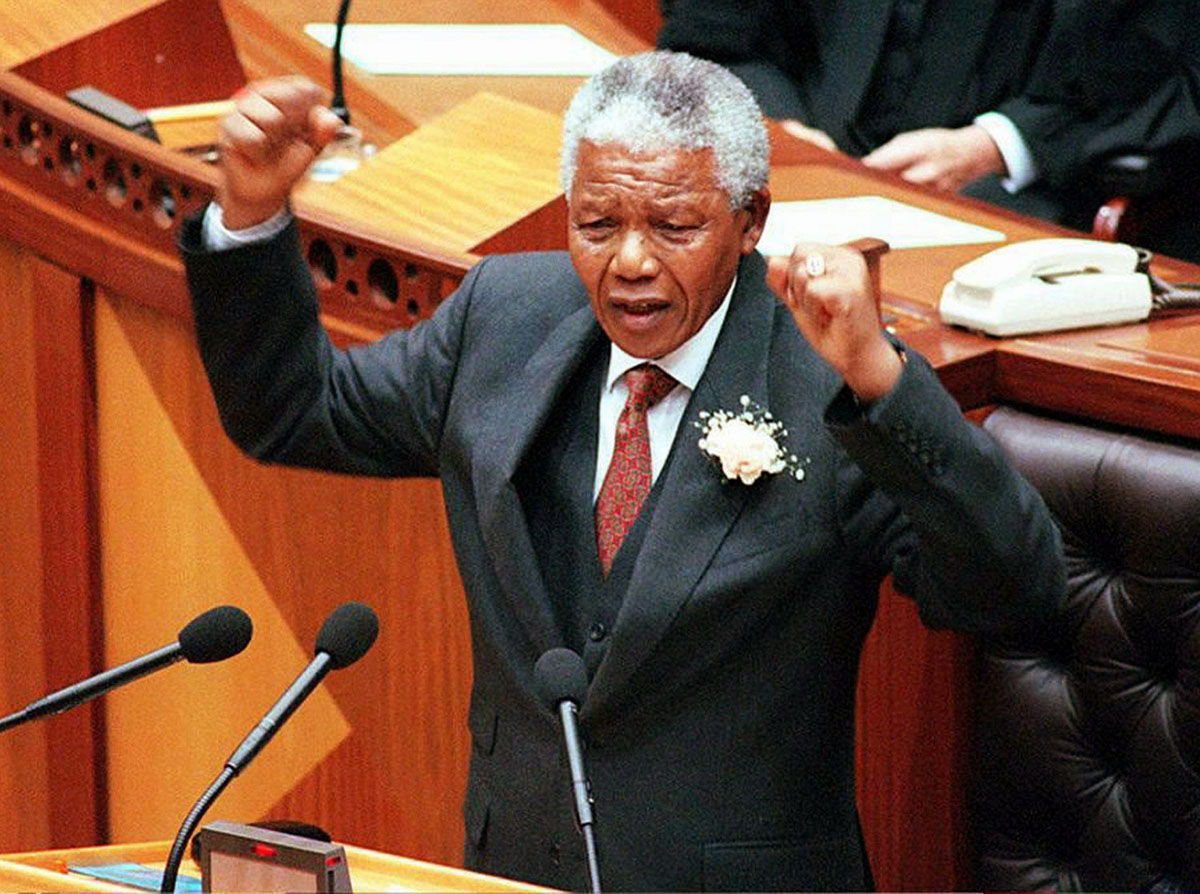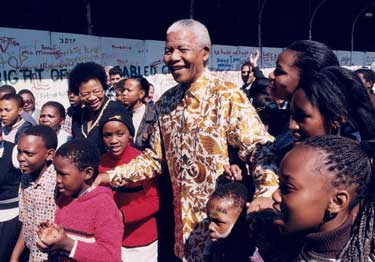Nelson Mandela
Nelson Mandela was the primary Black leader of South Africa, chosen after time in jail for his enemy of politically-sanctioned racial segregation work. He won the Nobel Peace Prize in 1993.
Nelson Mandela Early Life
Nelson Rolihlahla Mandela was brought into the world in Transkei, South Africa on July 18, 1918. Mandela's dad, who was bound to be a boss, filled in as an instructor to clan leaders for a long time however lost two of his title and fortune over a question with the nearby frontier magistrate.His father was Hendry Mphakanyiswa of the Tembu Tribe. Mandela was just a newborn child at that point, and his dad's deficiency of status constrained his mom to move the family to Qunu, a much more modest town north of Mvezo. The town was settled in a restricted verdant valley; there were no streets, just trails that connected the fields where domesticated animals nibbled.
The family lived in cottages and ate a neighborhood collect of maize, sorghum, pumpkin, and beans, which was everything they could manage. Water came from springs and streams and cooking was done outside.
Mandela played the rounds of youngsters, carrying on male right-of-section situations with toys he produced using the regular materials accessible, including tree limbs and dirt.
Education and Career
Mandela himself was instructed at the University College of Fort Hare and the University of Witwatersrand where he concentrated on the law.
Nelson Mandela was a social rights lobbyist, legislator, and donor who turned out to be South Africa's first Black President from 1994 to 1999. In the wake of becoming associated with the counter politically-sanctioned racial segregation development in his 20s, Mandela enlisted in the African National Congress in 1942. For a very long time, he coordinated a mission of quiet, peaceful disobedience against the South African government and its bigoted arrangements.
He enlisted in the African National Congress in 1944 and was occupied with obstruction against the decision National Party's politically-sanctioned racial segregation approaches after 1948. He went being investigated for injustice in 1956-1961 and was cleared in 1961.
Starting in 1962, Mandela went through 27 years in jail for political offenses. In 1993, Mandela and South African President F.W. de Klerk were mutually granted the Nobel Peace Prize for their endeavors to destroy the country's politically-sanctioned racial segregation framework. For a long time into the future, Mandela will be a wellspring of motivation for social liberties activists around the World.
Administration
Due in no little part to crafted by Mandela and President de Klerk, exchanges among Black and white South African's won: On April 27, 1994, South Africa held its first just races. Mandela was initiated as the Nation's first Black President on May 10, 1994, at 77 years old, with de Klerk as his first representative.From 1994 until June 1999, President Mandela attempted to achieve progress from minority rule and politically-sanctioned racial segregation to Black larger part rule. He utilized the country's energy for sports as a turn highlight advance compromise among white and Black individuals, empowering Black South African's to help the once-detested public rugby crew.
In 1995, South Africa went to the world stage by facilitating the Rugby World Cup, which carried further acknowledgment and eminence to the youthful republic. That year Mandela was likewise granted the Order of Merit.
During his administration, Mandela likewise attempted to shield South Africa's economy from breakdown. Through his Reconstruction and Development Plan, the South African government subsidized the formation of occupations, lodging, and fundamental medical care.
In 1996, Mandela endorsed into law another constitution for the country, setting up a solid focal government dependent on the greater part rule, and ensuring both the privileges of minorities and the opportunity of articulation.
Retirement and Later Career
By the 1999 general political decision, Mandela had resigned from dynamic legislative issues. He kept on keeping a bustling timetable, in any case, fund-raising to fabricate schools and centers in South Africa's provincial heartland through his establishment, and filling in as a go-between in Burundi's polite conflict.
Mandela was analyzed and treated for prostate malignant growth in 2001. In June 2004, at 85 years old, he reported his conventional retirement from public life and got back to his local town of Qunu.
Passing
He was delivered following a couple of days, after the fact getting back to Qunu. Mandela would be hospitalized on many occasions over the course of the following quite a while in December 2012, March 2013, and June 2013 for additional testing and clinical treatment identifying with his intermittent lung disease.
















0 Comments